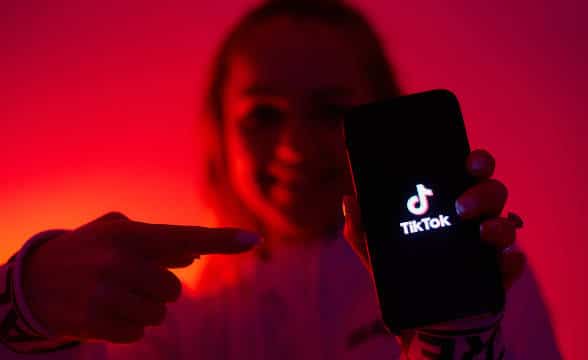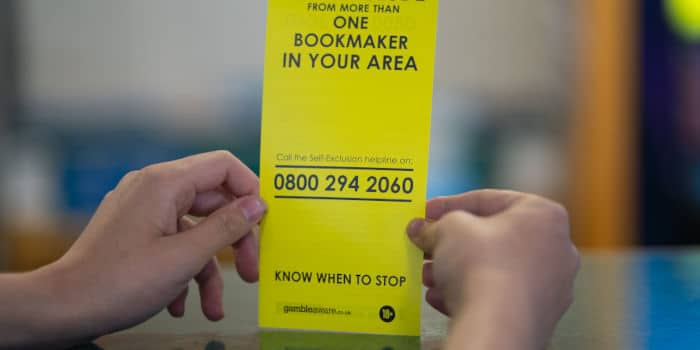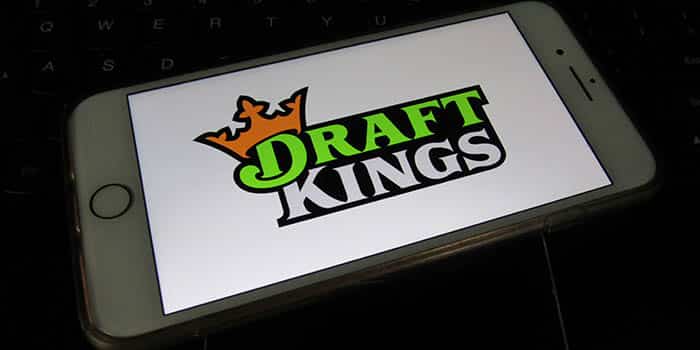- Casino
- By State
- Alabama
- Alaska
- Arizona
- Arkansas
- California
- Colorado
- Connecticut
- Delaware
- Georgia
- Florida
- Hawaii
- Idaho
- Illinois
- Indiana
- Iowa
- Kansas
- Kentucky
- Louisiana
- Maine
- Massachusetts
- Maryland
- Michigan
- Minnesota
- Mississippi
- Missouri
- Montana
- Nebraska
- Nevada
- New Hampshire
- New Jersey
- New Mexico
- New York
- North Carolina
- North Dakota
- Ohio
- Oklahoma
- Oregon
- Pennsylvania
- Rhode Island
- South Carolina
- South Dakota
- Tennessee
- Texas
- Utah
- Vermont
- Virginia
- Washington
- West Virginia
- Wisconsin
- Wyoming
- By State
- Slots
- Poker
- Sports
- Esports
Australia First Country to Run TikTok Gambling Ads Pilot

Gambling ads have been a hot topic in Australia lately, and with regulation tightening, the news that TikTok is still moving forward, albeit cautiously, with them has sparked a discussion. The problem of gambling harm was brought to light again.
TikTok Allowing Sports Gambling Ads
TikTok’s advertising policy regarding gambling ads in Australia has gained nuance, an ABC News report covered. TikTok has taken a U-turn on its gambling advertising policy with a new pilot it’s testing out, allowing sports gambling ads from a single operator – Sportsbet.
TikTok’s advertising policies prohibit all forms of gambling ads: from ads promoting fantasy sports or bingo, through ads coming from or containing a gambling brand to sponsored content. However, there’s an explanation on the website’s business help center about the current situation for Australia: “A closed pilot for sports betting is currently in operation for one managed client who has obtained permission from TikTok via an application process.”
The TikToks in question all carry the “Gamble responsibly” tagline, which is in line with the current government requirements for gambling ads, and are meant to be age-restricted. The advertising content is reportedly very difficult to discern from regular entertainment content and some industry specialists are concerned that these precautions aren’t enough of a safeguard.
Anti-Gambling Specialists Are Worried
Native advertising – or sponsored content as it’s widely known – is meant to feel organic, and is not easily recognized as advertising by design. While some might feel this is underhanded, this type of advertising should always be served with some sort of additional messaging that makes it obvious for those with a keen eye. Most of the opponents of TikTok’s decision to move forward with some form of gambling advertising don’t condemn the move because of the fine print, though.
TikTok, and social media as a whole, is known to attract younger people, and age restrictions have been proven to be rather ineffective as there are multiple examples of under-aged users for almost all of the biggest platforms. This is the first point of contention – age restriction alone will not be enough. ABC’s report cited Nicholas Carah – University of Queensland digital cultures and societies director – saying that limiting the exposure to gambling ads to only those over 21 would be difficult for TikTok.
Targeting the younger generation, and young adults in particular, is not a new occurrence and is definitely not exclusive to the gambling industry. Compared to older demographics, young adults are expected to have a higher lifetime value as consumers which makes them a premium demographic to advertise to. ABC’s report cited Samantha Thomas – a Deakin University gambling researcher – condemning the move: “It’s really concerning for us to start to see these types of posts coming onto the platform.”
According to the report, professor Thomas has said that when asked, young people only remember gambling ads on the platform as funny bits and videos, not as advertisements. There’s an innate reaction some people have when exposed to ads, and carrying limited signaling that a given viral video is actually an ad, circumvents that. The government is addressing this issue not only on social media but on all forms of gambling advertising with its latest plans to change the language that does so entirely by implementing much clearer messaging about the dangers and potential harm gambling can pose.
Australia has been looked at closely in discussions about problem gambling and gambling harm. The Australian Gambling Research Center put the country in first place for largest per capita losses from gambling in the world, which signal there’s potentially a huge problem there. A comprehensive study on gambling in Australia was released in September of last year and it also outlined another worrying trend – the increase of problem gambling among the average population, reaching 5.2% in 2018, concerning around 1.3 million people.
Kyamil is a big tech fan, who loves hummus on everything and has enjoyed writing from a young age. From essays, through personal art, to news pieces and more serious tech analysis. In recent years he’s found fintech and gambling collide with all his interests, so he truly shares our core passion for the entire gambling scene and furthering the education of the mass citizen on these topics.
Must Read
More Articles





Sports
July 15, 2025
Undercover Spotters Catch Wimbledon Betting Spies

Industry
July 15, 2025
UK Considers Gambling Tax Hike to Fill Budget Gap

Casino
July 15, 2025
Uno Is Coming for Casinos in the United States

Industry
July 14, 2025
GambleAware Launches Milestone Self-Awareness App













